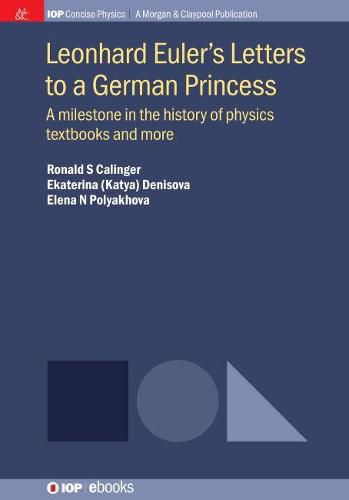Readings Newsletter
Become a Readings Member to make your shopping experience even easier.
Sign in or sign up for free!
You’re not far away from qualifying for FREE standard shipping within Australia
You’ve qualified for FREE standard shipping within Australia
The cart is loading…






This title is printed to order. This book may have been self-published. If so, we cannot guarantee the quality of the content. In the main most books will have gone through the editing process however some may not. We therefore suggest that you be aware of this before ordering this book. If in doubt check either the author or publisher’s details as we are unable to accept any returns unless they are faulty. Please contact us if you have any questions.
Leonhard Euler’s Letters to a German Princess: A Milestone in the History of Physics Textbooks and More is a milestone in the history of physics textbooks and the instruction of women in the sciences.
It also covers views of its author on epistemology, religion, and innovations in scientific equipment, including telescopes and microscopes. Today, 250 years later, we study this work of Euler’s as a foundation for the history of physics teaching and analyze the letters from an historical and pedagogical point of view.
$9.00 standard shipping within Australia
FREE standard shipping within Australia for orders over $100.00
Express & International shipping calculated at checkout
This title is printed to order. This book may have been self-published. If so, we cannot guarantee the quality of the content. In the main most books will have gone through the editing process however some may not. We therefore suggest that you be aware of this before ordering this book. If in doubt check either the author or publisher’s details as we are unable to accept any returns unless they are faulty. Please contact us if you have any questions.
Leonhard Euler’s Letters to a German Princess: A Milestone in the History of Physics Textbooks and More is a milestone in the history of physics textbooks and the instruction of women in the sciences.
It also covers views of its author on epistemology, religion, and innovations in scientific equipment, including telescopes and microscopes. Today, 250 years later, we study this work of Euler’s as a foundation for the history of physics teaching and analyze the letters from an historical and pedagogical point of view.